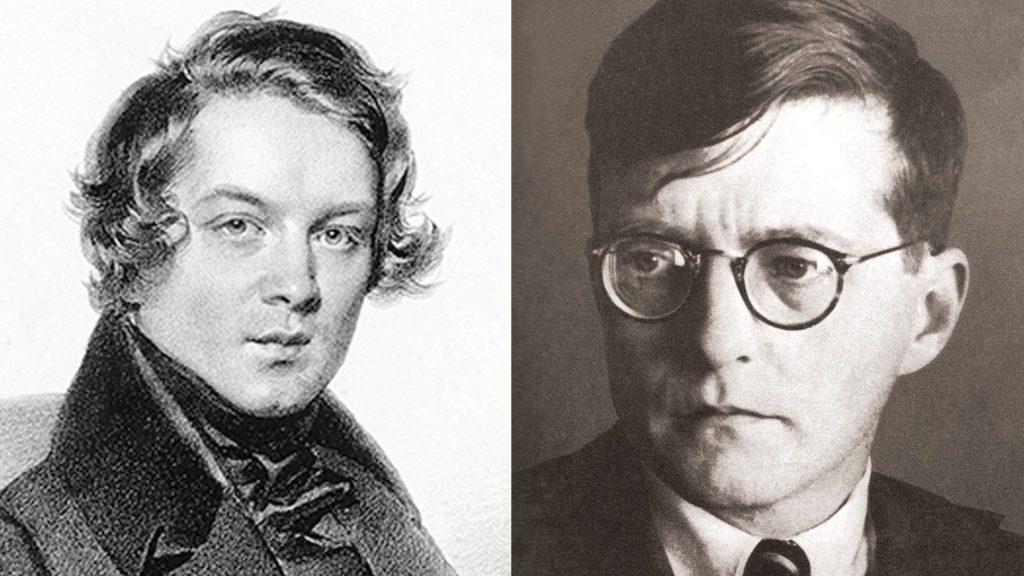Mendelssohn String Quartet No. 2 in A minor, Op. 13 (1827) and Shostakovich String Quartet #8 in C minor, Op. 110 (1960)
Felix Mendelssohn (1809-1847) was a German composer, pianist, organist and conductor of the early Romantic period. His compositions include symphonies, concertos, piano music, organ music and chamber music. Though Mendelssohn was still a teenager when he wrote this quartet, he was already an experienced composer of chamber music. He wrote the quartet a few months after the death of Ludwig van Beethoven, and the influence of Beethoven’s late string quartets is evident in this work.
Dmitri Shostakovich (1906-1975) was a Soviet-era Russian composer and pianist. He is regarded as one of the major composers of the 20th century and one of its most popular composers. His music is characterized by sharp contrasts, elements of the grotesque, and ambivalent tonality; he was also heavily influenced by the neoclassical style pioneered by Igor Stravinsky, and by the late Romanticism of Gustav Mahler. The string quartet was written shortly after Shostakovich reluctantly joined the Communist Party. According to the score, it is dedicated “to the victims of fascism and the war”; his son Maxim interprets this as a reference to the victims of all totalitarianism, while his daughter Galina says that he dedicated it to himself, and that the published dedication was imposed by Soviet authorities. Shostakovich’s friend, Lev Lebedinsky, said that Shostakovich thought of the work as his epitaph and that he planned to commit suicide around this time. The work was written in Dresden, where Shostakovich was to write music for the film Five Days, Five Nights, a joint project by Soviet and East German filmmakers about the bombing of Dresden in World War II. The quartet was premiered in 1960 in Leningrad by the Beethoven Quartet.
July 28, 2024, 6:00 PM TO 7:30 PM
LOCATION
Wausau Conservatory of Music
404 Seymour Street
Wausau, WI 54402
PURCHASE TICKET: FREE
SEE MAP:

